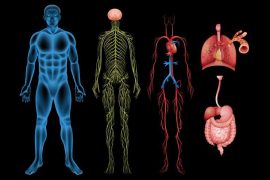A lot of those who have been diagnosed with diabetes often complain about dizziness. But is there really a link between dizziness and diabetes? Read on to find out.
Hypoglycemia
A person who has been diagnosed with diabetes could also suffer from hypoglycemia or low blood sugar level. This is when he or she over-consumed some diabetes medicines, including insulin injections. This also happens if the patient skips breakfast or any meal. Hypoglycemia can also be a side effect of one of the medications for diabetes and in some cases, could lead to dizziness.
Lack of Glucose to The Brain
Continuous supply of glucose to the brain is important in order for it to be able to function well. Insufficient or interrupted supply of glucose can result in dizziness and can also trigger other diabetes symptoms such as nervousness, confusion, shakiness, profuse sweating, anxiety, weakness and fainting.
Friends and family of diabetic patients should be aware of these symptoms as they can help the patient by giving him or her sugar-enriched foods immediately. Prompt medical treatment also requires administering glucagon injection. This treatment can help save the life of the diabetic patient.
Hyperglycemia
Hyperglycemia or high level of blood sugar is also among the most common causes of dizziness for people with diabetes. If the pancreas cannot produce efficient amount of insulin, the level of the blood glucose will remain elevated. In the event of insulin resistance, high level of blood glucose can also be present.
Severe fluctuations of the level of blood sugar can also result to hormonal imbalance. To remedy the imbalances, the pancreas is force to work harder. However, the capacity of our pancreas is often limited. Overwork usually leads to the dysfunction of the pancreas. The inadequacy of insulin can further increase blood glucose level in diabetes patients.
Hyperglycemia can also lead to anaerobic metabolism and dehydration. This can also trigger changes in the acid base balance. High blood sugar level can affect several metabolic functions and can lead to dizziness and fainting. The high blood sugar level may also exhibit other symptoms such as excessive thirst, dry mouth, fatigue, blurred vision as well as dizziness. An extremely high level of sugar can lead to the difficulty of breathing and coma.
In order to avoid dizziness, it is important for diabetes patients to take medicines in accordance to the doctor’s prescription. He or she must strictly follow a low glycemic diet and exercise on a regular basis. Lifestyle changes such as diet and exercise, can greatly help in controlling the fluctuating blood sugar level, which helps to prevent dizziness and other diabetes symptoms and complications.




